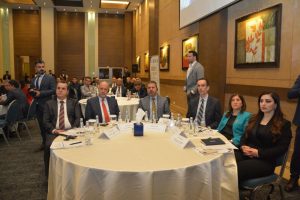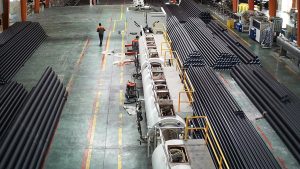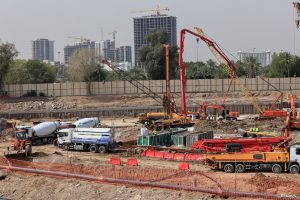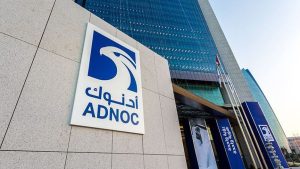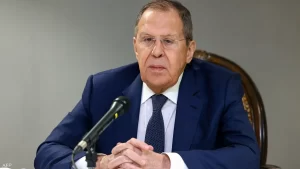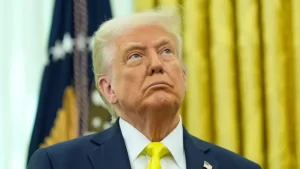The United Nations’ Sustainable Development Goals (SDGs) primarily focus on the essential elements for achieving a better path to equitable economic growth, providing adequate and equal education, gender equality, and material well-being across multiple dimensions. In this context, we will focus on SDG Goal 8, which aims to promote inclusive and sustainable economic growth, full and productive employment, and decent work for all.
Several targets lie behind these objectives, including sustainable economic growth (8.1), higher levels of economic productivity (8.2), encouragement of productive activities (8.3), full productive employment, and decent work for all (8.5), reduction of the number of young people who are neither employed nor in education or training (8.6), and the elimination of forced labor, human trafficking, and the worst forms of child labor (8.7).
This overview aims to provide insight into the labor market and productivity in Iraq, offering policy guidance that can help achieve these goals in line with the 2030 Sustainable Development Agenda.
The Labor Market in Iraq
Iraq’s labor market is facing a series of challenges that hinder economic growth and the achievement of the SDGs. These challenges include:
- High Unemployment Rates: Despite Iraq’s substantial oil revenues, the country continues to suffer from high unemployment rates, particularly among young people. The youth unemployment rate is alarmingly high, with many young people unable to find jobs, which leads to socio-economic instability.
- Limited Private Sector Development: The private sector in Iraq is underdeveloped, and there is a significant reliance on the public sector for employment. This makes the economy vulnerable to fluctuations in oil prices, which are the primary source of government revenue. The lack of diversification in the economy also limits job creation in non-oil sectors.
- Skills Gap: There is a mismatch between the skills offered by the educational system and the demands of the labor market. Many young people graduate without the necessary skills required for the private sector, particularly in fields like technology, engineering, and management.
- Gender Disparity: Gender inequality in the labor market remains a significant issue in Iraq. Women face barriers to entering the workforce due to cultural norms, limited access to education and training, and lack of equal opportunities in many sectors. This inequality limits the full potential of the workforce.
- Informal Sector Growth: A significant portion of the Iraqi workforce is employed in the informal sector, where workers often face poor working conditions, low wages, and lack of job security. This makes it difficult to improve productivity and provide decent work for all.
- Political Instability: Iraq has faced decades of political instability, which has undermined both public and private sector development. Frequent changes in government, corruption, and security challenges have slowed down economic growth and affected job creation in many sectors.
Policy Recommendations for Enhancing the Labor Market in Iraq
To address these challenges and achieve SDG Goal 8, Iraq needs to focus on several policy interventions:
- Private Sector Development: Encouraging private sector growth is crucial for creating sustainable jobs. The government should create a conducive environment for investment by implementing legal reforms, improving the business climate, and providing incentives for entrepreneurs to invest in sectors outside oil and gas.
- Youth Employment Programs: Given the high youth unemployment rate, specific policies targeting youth employment are necessary. This could include expanding vocational training programs, offering internships, and creating youth-friendly workspaces that align with the demands of the private sector.
- Education and Skills Development: Reforming the education system to align with the needs of the labor market is vital. Focus should be placed on technical and vocational education, STEM (science, technology, engineering, and mathematics) fields, and entrepreneurship. Providing young people with the skills needed to succeed in a modern economy will significantly improve employment prospects.
- Promoting Gender Equality: Policies that promote gender equality in the labor market should be prioritized. This includes creating opportunities for women in sectors traditionally dominated by men, providing support for women entrepreneurs, and removing cultural and legal barriers to women’s employment.
- Strengthening Labor Rights and Social Protection: To address the issue of informal employment, Iraq should strengthen labor rights and provide better social protection for workers. This could include establishing minimum wage standards, improving labor laws, and expanding access to social security and healthcare for informal sector workers.
- Economic Diversification: Iraq must diversify its economy to reduce dependence on oil and create jobs in other sectors. Developing sectors such as agriculture, manufacturing, renewable energy, and information technology can create new opportunities for the workforce, particularly in rural areas.
- Fighting Corruption and Bureaucratic Hurdles: Tackling corruption and easing bureaucratic red tape are essential to creating a more transparent and efficient labor market. This would involve improving governance, transparency, and accountability in public sector institutions and providing clear regulatory frameworks for businesses and workers alike.
Conclusion
Iraq’s labor market faces significant challenges, but with the right policy interventions, it is possible to create an inclusive, productive, and sustainable labor force. Focusing on the development of the private sector, addressing youth unemployment, enhancing education and skills training, and ensuring gender equality will be key to achieving SDG Goal 8. By doing so, Iraq can make significant strides toward building a more resilient and diversified economy that provides decent work for all its citizens.







